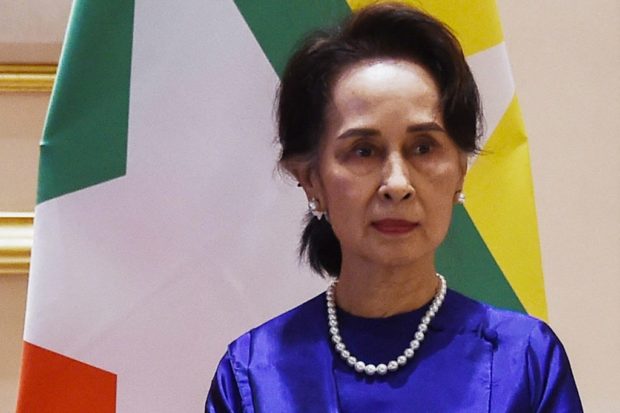Myanmar’s Suu Kyi due to hear first verdict in junta trial

Aung San Suu Kyi AFP FILE PHOTO
Isolated
Suu Kyi’s long spells of house arrest under a previous junta were spent at her family’s colonial-era mansion in Yangon, where she would appear before thousands gathered on the other side of her garden fence. Min Aung Hlaing’s regime has confined her to an undisclosed location in the isolated capital, along with a small staff. Her link to the outside world has been limited to brief pre-trial meetings with her lawyers, who have brought her news and relayed messages to her supporters. At her first court appearance, she used them to send a message of defiance, vowing the NLD would endure and asking the party faithful to remain united. On her 76th birthday in June supporters across the country posted pictures on social media of themselves with flowers in their hair — long a signature Suu Kyi look. Two days later, her legal team passed on a message from Suu Kyi thanking them for the gesture. But in October her team were hit with a gag order after they relayed vivid testimony from deposed president Win Myint describing how he rejected a military offer to resign to save himself during the coup. Meanwhile, the trials of other ranking members of Suu Kyi’s NLD have wrapped up, with the junta doling out harsh sentences. A former chief minister was sentenced to 75 years in jail earlier this month, while a close Suu Kyi aide was jailed for 20. The generals could later reduce any sentence pronounced on the higher-profile Suu Kyi, said Mathieson, although he cautioned against expecting clemency from the junta and its leader. “How much mercy does Min Aung Hlaing possess?”
READ NEXT
EDITORS' PICK